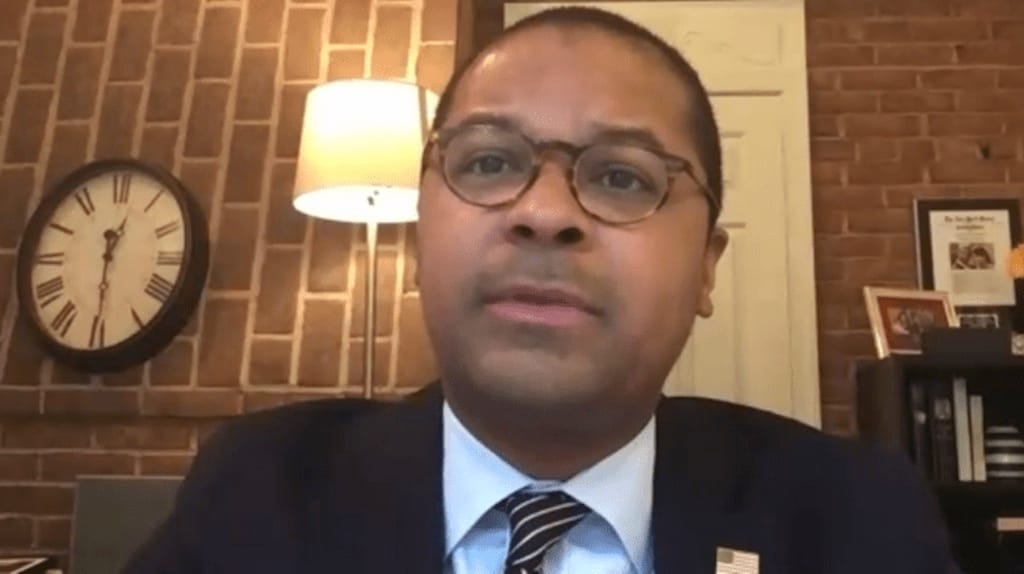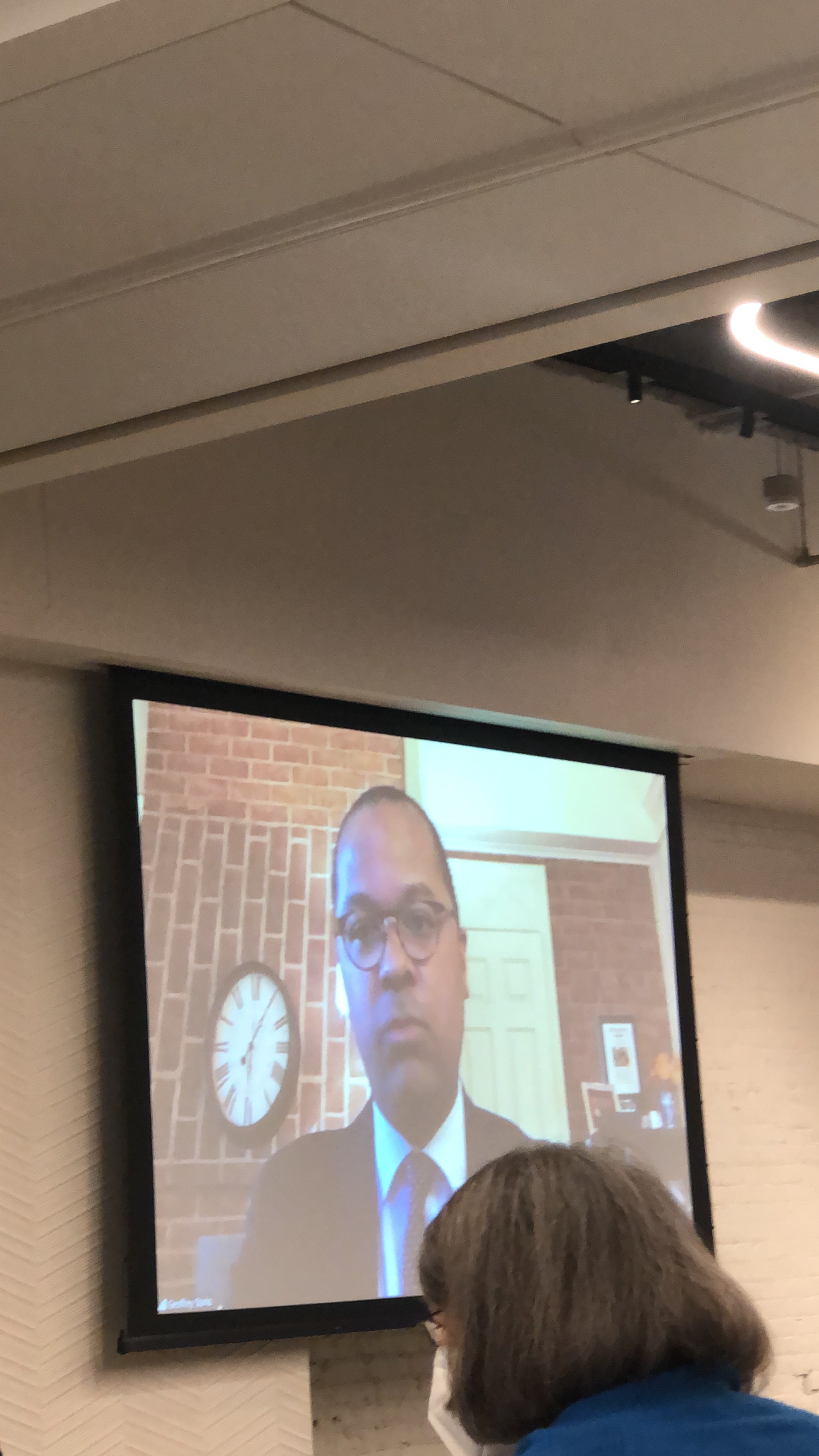Federal Communications Commissioner Geoffrey Starks Presses Need for More Action on E-Waste
FCC commissioner Geoffrey Starks encourages manufacturers to help reduce emissions to protect the planet.
Theadora Soter

WASHINGTON, March 1, 2022 – Federal Communications Commissioner Geoffrey Starks endorsed Monday the refurbishment of any and all technology devices to limit electronic waste and for manufacturers to reduce their carbon footprint.
“We need to discuss the billion devices that make up our networks,” he said at the 18th annual State of the Net conference. Starks noted that electronic waste can take hundreds of years to decompose.
Starks urged “every person in the telecommunication and technology space” to help reduce emissions to protect the planet, stating that “the time to act is now.”
Despite the efforts companies are making to refurbish electronics and recycle parts used, Starks said “we must continue to build on these efforts” by incentivizing consumers and companies alike to expand the efforts to limit electronic waste.
Starks’ comments about the technology industry’s role in respect to the environment come after a similar speech the commissioner made in early January of this year, during which he emphasized the important role 5G will play on the environment. That includes allowing for a broadband-enabled smart grid system that will make automated decisions on energy allocation.

Photo of Starks at the 2022 State of the Net conference by Theadora Soter
At the SOTN conference, Starks echoed these initiatives while also encouraging technology manufacturers to be cognizant of the affect their products have on the environment.
“Manufacturers have shifted to using lower carbon plastic, expanding their recycling programs, but there is more to do,” said Starks. The commissioner encouraged manufacturers to expand their use of lower-carbon plastic while also considering re-usability of technologies.
“Using recycled materials not only reduces waste, but also lowers the carbon emissions associated with manufacturing by about 30 percent,” Starks said.









Member discussion